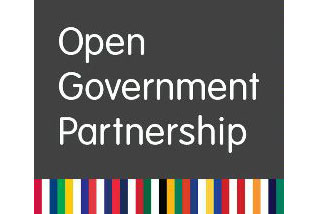Nata Dzvelishvili, media.ge
On February 5, eighteen NGOs submitted their recommendations on the action plan of the Open Government Partnership to Prime Minister Bidzina Ivanishvili.
Open Government Partnership (OGP) is US President Barak Obama’s initiative and aims to introduce new standards of openness, transparency and civic engagement through modern technologies. Georgia joined Obama’s initiative last year and took obligations. The process of fulfillment of these obligations is monitored by the NGO forum which gathers once a month to hear government’s report on implemented actions.
Recommendations to the Prime-Minister concern several directions.
Improvement/development of legislative base
Civil society representatives believe that Chapter III of the General Administrative Code must be improved. For example, issues like canceling fees for the cases on freedom of information, clear establishment of openness of personal data of public officials and authorities, prescribing obligations for specific obligations for information processing, etc.
Besides that, it is necessary to start public consultations on the bill – Law of Georgia on Freedom of Information.
Transparent public service
NGOs believe the list of state officials, whose property declarations are placed the data base of http://www.declaration.ge/, must be extended. The list must include directors and deputy directors of all public law legal entities, deputy heads of subunit structures, heads and deputy heads of all departments and services of ministries, heads and deputy heads of non-commercial legal persons founded by State, directors of limited liability companies and joint-stock companies created by 100% State funding.
Audit system for property declarations of public servants must be created and audit deadlines and information on results of audits must be published.
NGOs believe that government sessions must be open and minutes from government sessions, stenographic recordings, decrees and orders must be posted on the website.
Transparent management of public funds and property
Civil society representatives believe that customers not registered in the unified electronic system of state procurement must have the availability of procurement plans and reports of procuring organizations.
Procurement by avoiding unified electronic procurement system must be decreased.
Additionally it is necessary to create easily available online and offline platforms in order for interested citizens to regularly participate in consultations about budget.
It is preferable to regularly and timely publish all main budgetary documents and make them available both in electronic and printed forms.
To ensure public availability of the information on audit conclusions on State budget expenses, including the State audit conclusion on fulfillment of plans of program budget.
Legal acts on allocation of funds from reserve funds must be proactively published on the website of the Ministry of Finance no later than a day after their adoption.
To achieve higher transparency of the State auctions electronic system (http://www.e-auction.ge/) it would be advisable to improve the search and information archiving systems.
NGOs recommend the Prime Minister to make information about investment project and investors themselves maximally available as well as the information on obligations taken under contracts and fulfillment of those obligations.
According to the recommendations, government of Georgia must take obligation to implement the Extracting Industries Transparency Initiative (http://www.eiti.org/) which is an international standard for transparency and accountability and which has been lately ratified by the USA, Norway and other leading countries of the world. By ratifying the given initiative Georgia will take obligation to annually publish following types of public information: budgetary revenues received for transit and other types of tax revenues of oil and gas via Georgian territory and volumes of transited oil and gas.
Via http://www.data.gov.ge/ and other resources must be available information (financial reports, liabilities, contact information and etc.) on non-commercial legal persons founded by administrative bodies, subsidiary LLCs and J-SCs’.
Public awareness and participation
Non-governmental organizations recommend creating a separate page (www.government.gov.ge/ogp) of the Open Government Partnership on the official website of the government of Georgia which will regularly update information (also in the languages of ethnic minorities) about implementation of the action plan by Georgia. OGP website must have a separate banner on the main page of the Georgian government’s official website. Social networks must also be used to disseminate information about the Open Government Partnership and to receive opinions, recommendations from citizens.
Civil society representatives believe that Georgian government must order implementation of obligations taken under the Open Government Partnership initiative to those State bodies that have relevant competence along with necessary human, technical, material and financial resources.
According to the recommendations, for effective implementation of the action plan it is necessary to create monitoring mechanisms; namely: The plan must by all means include evaluation indicators. It is important to preliminarily define funding sources for each activity. It is necessary to consider possible risk-factors for each specific activity as they may hamper implementation of planned activities.




